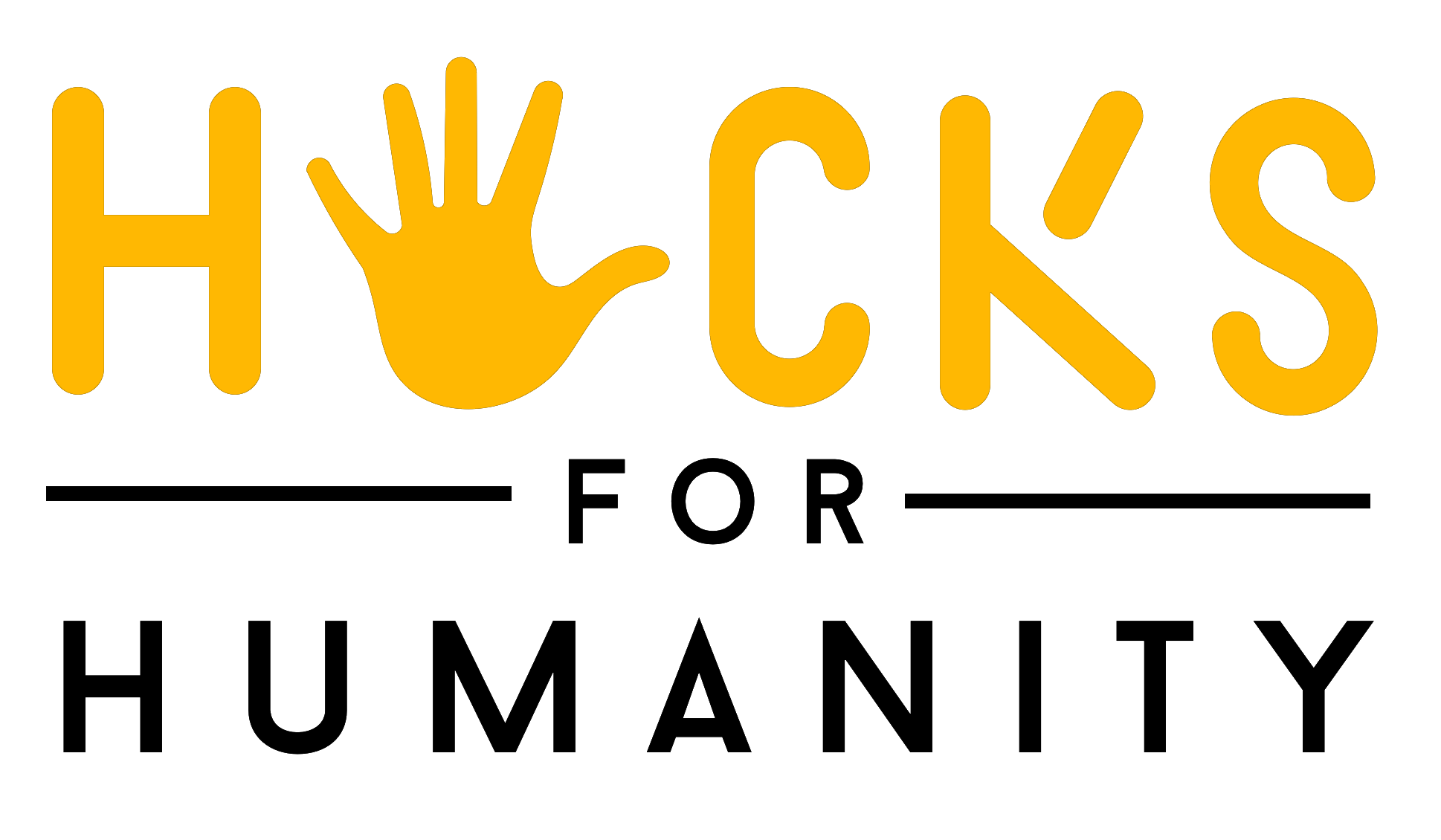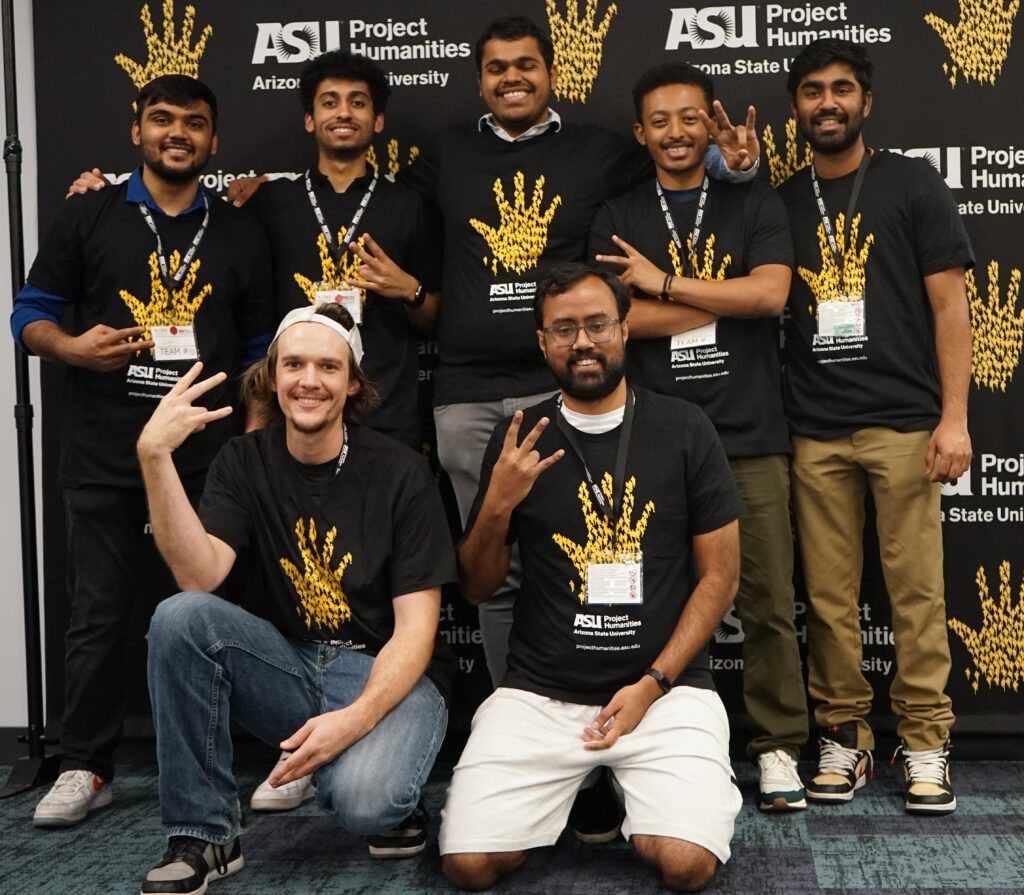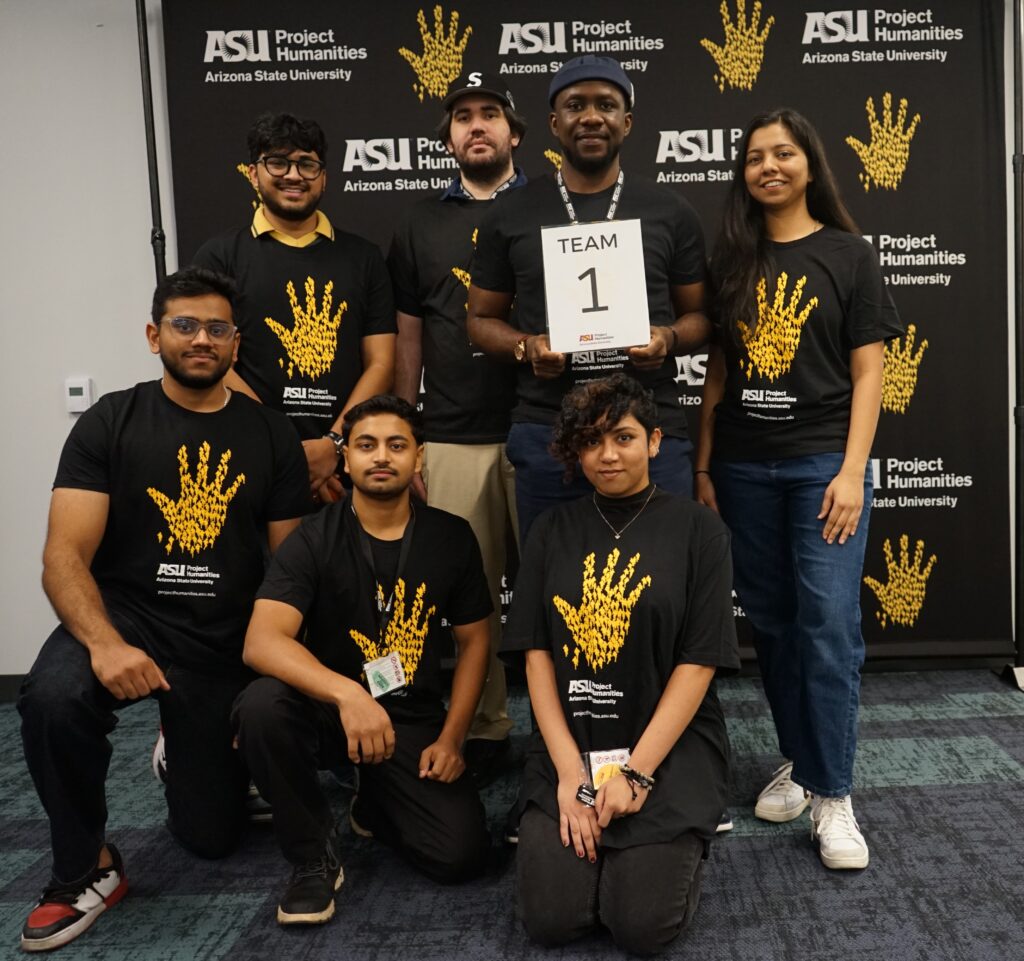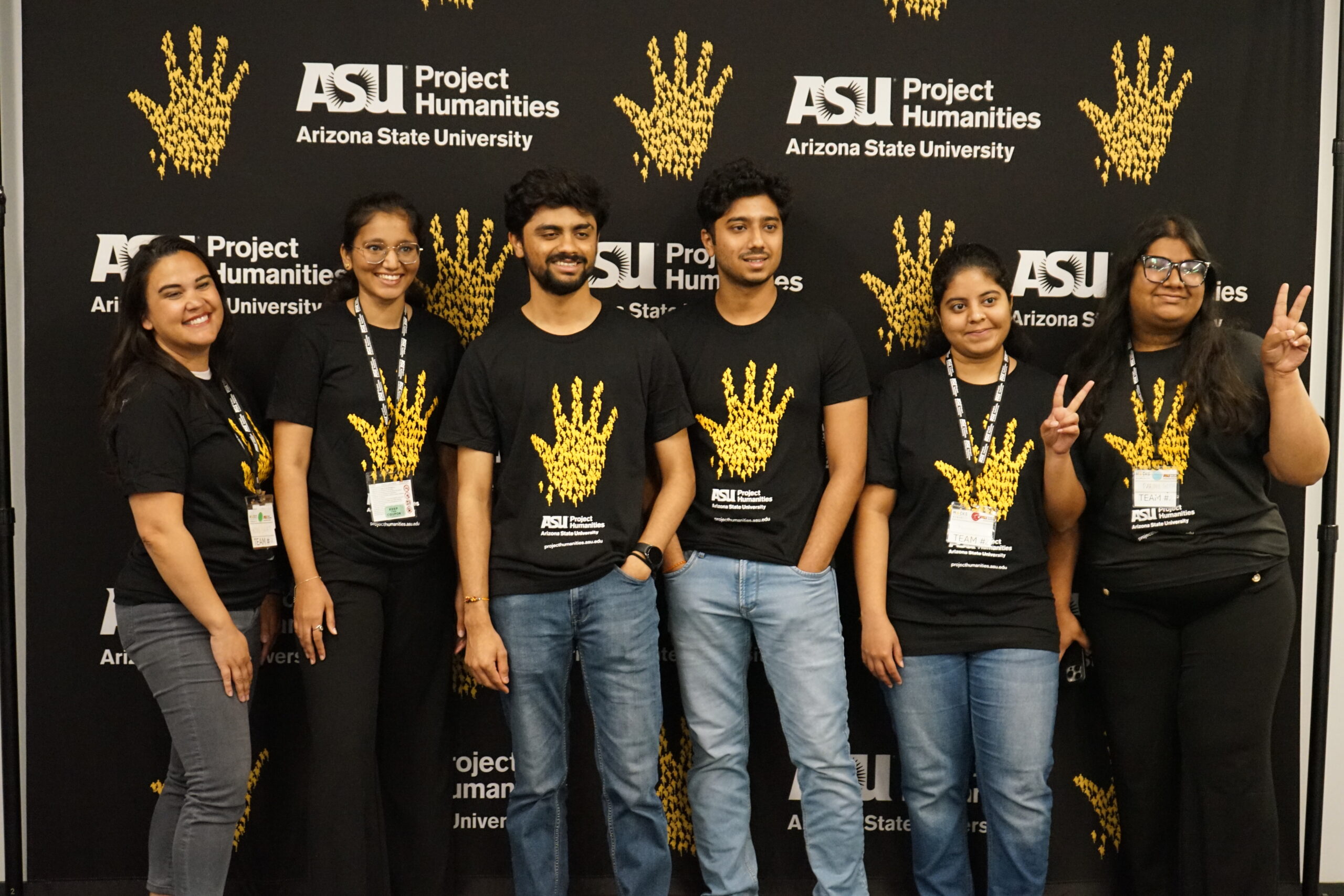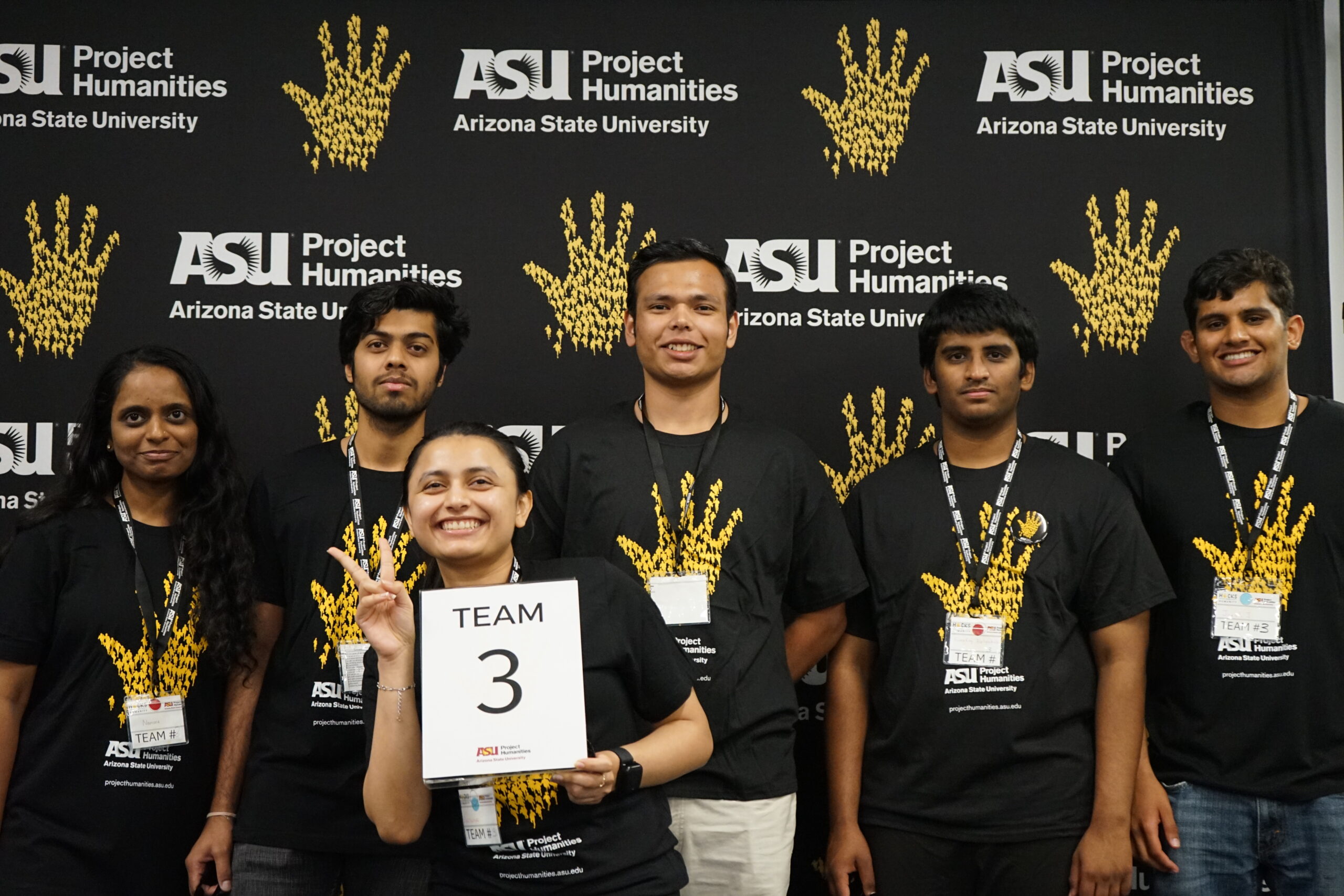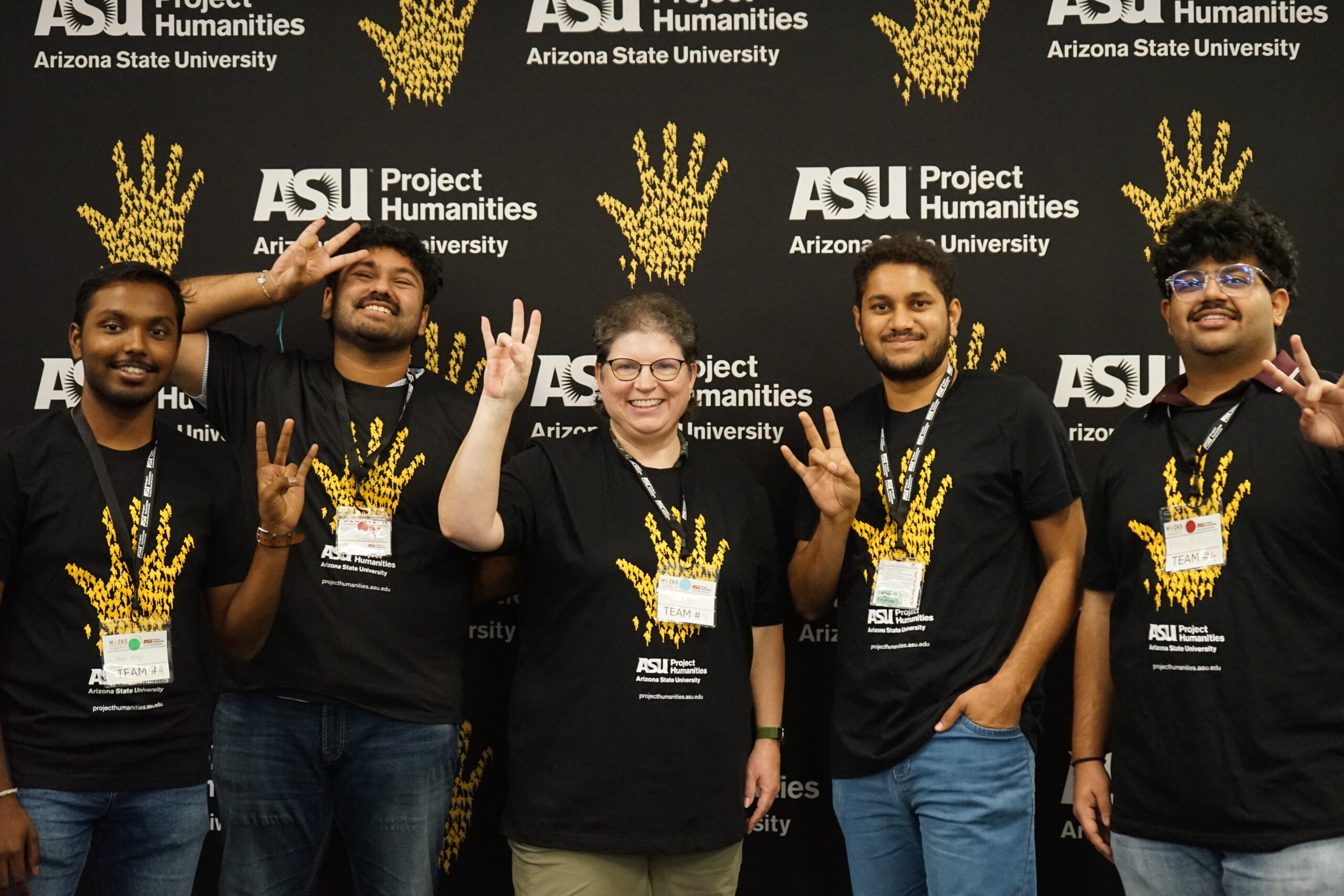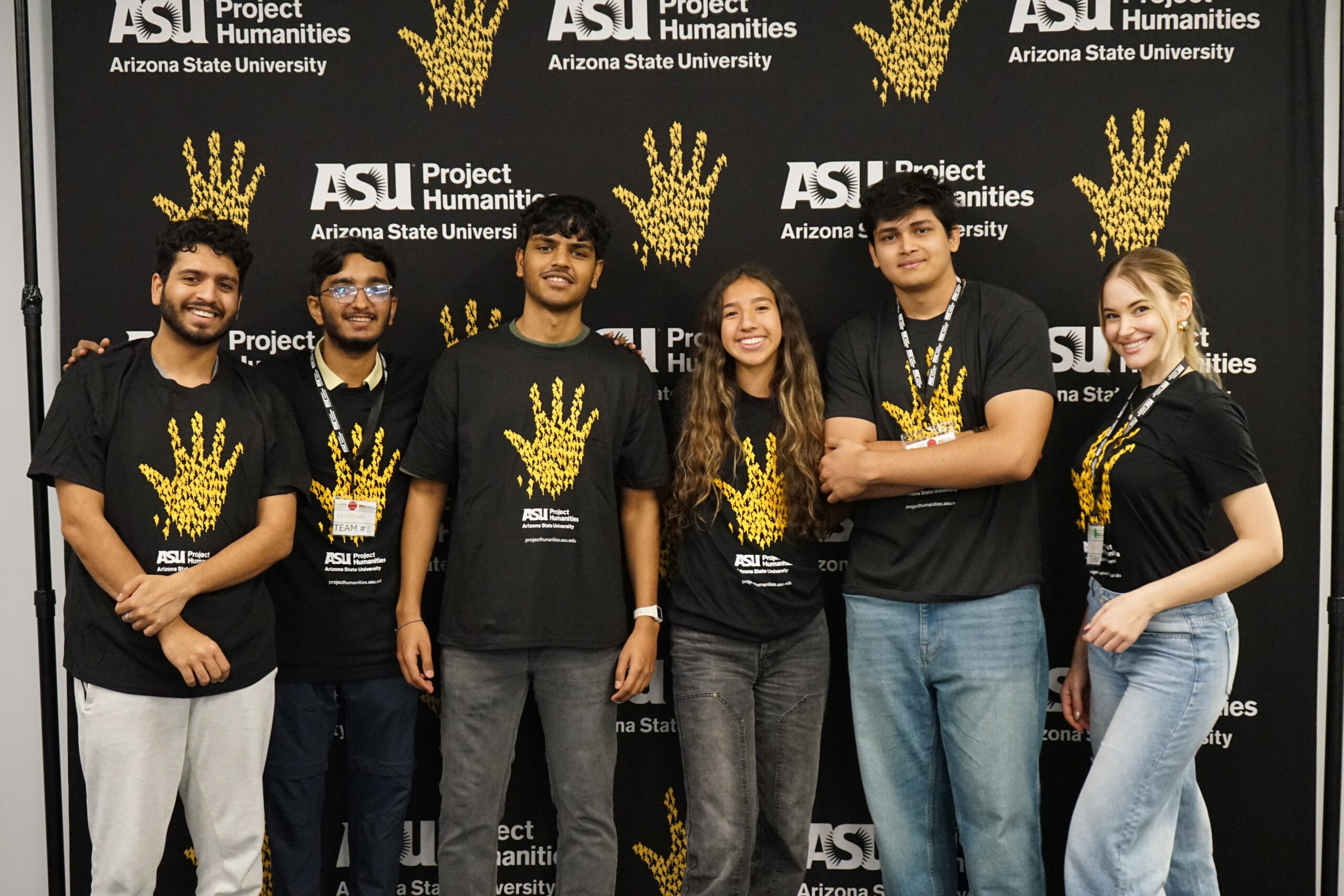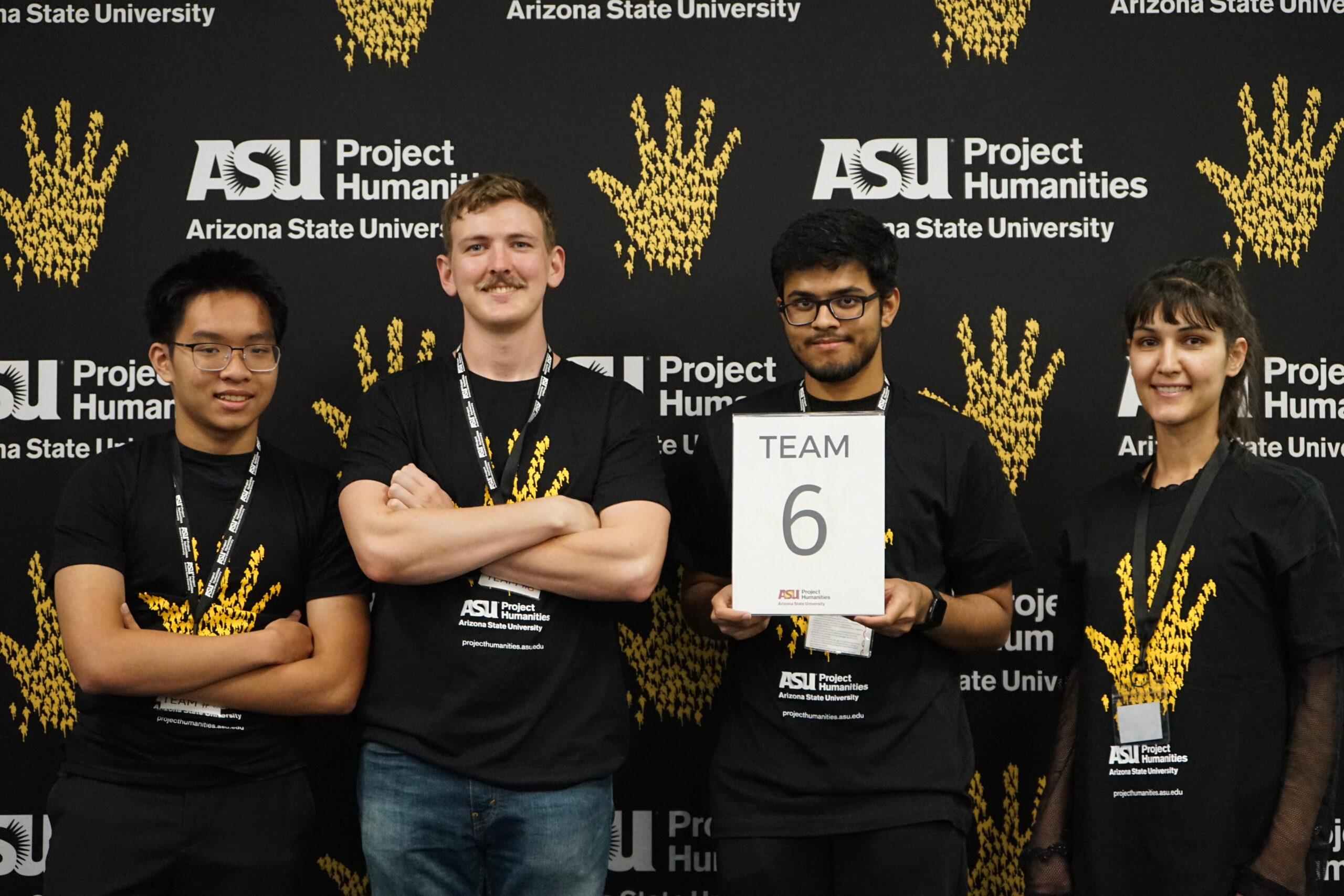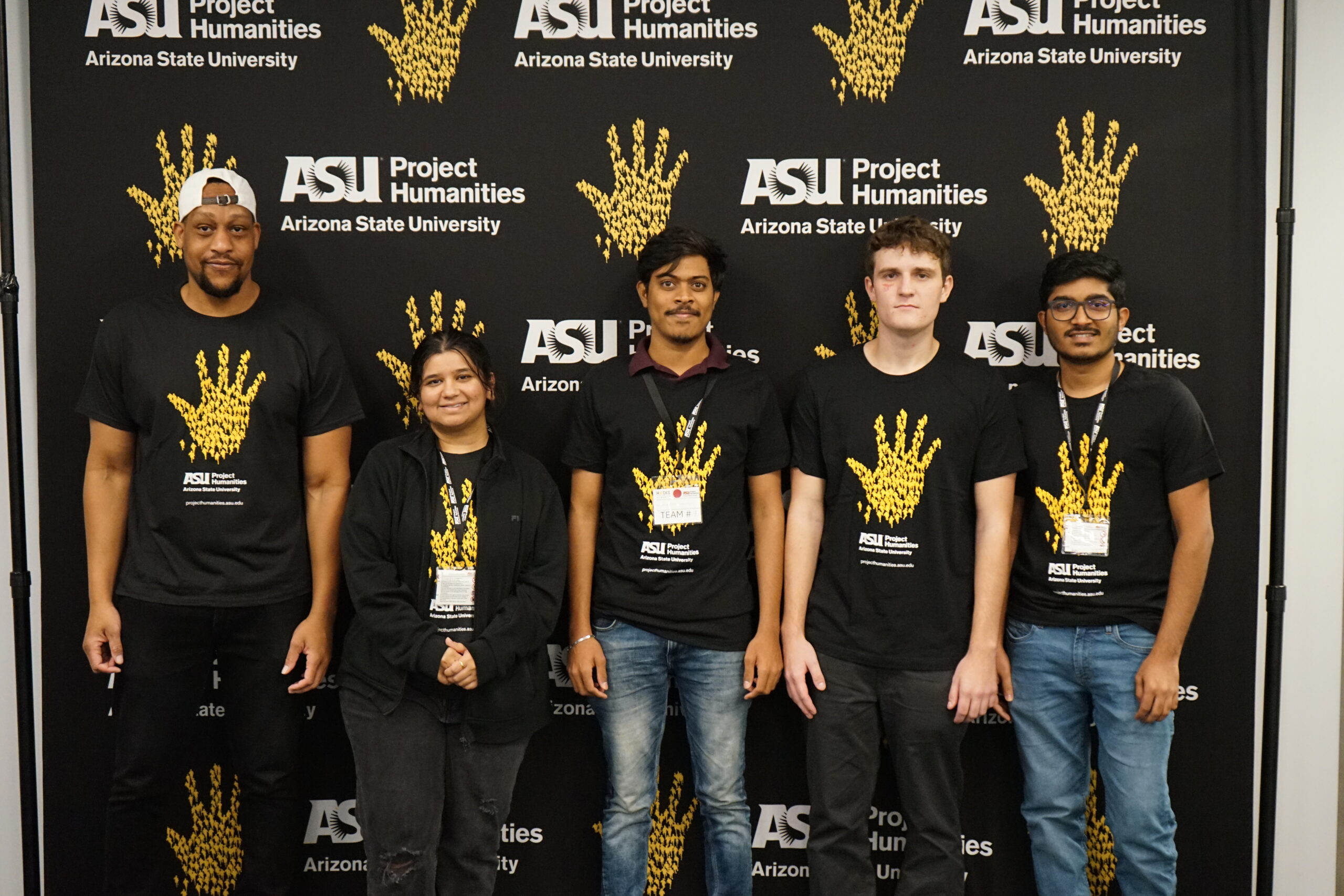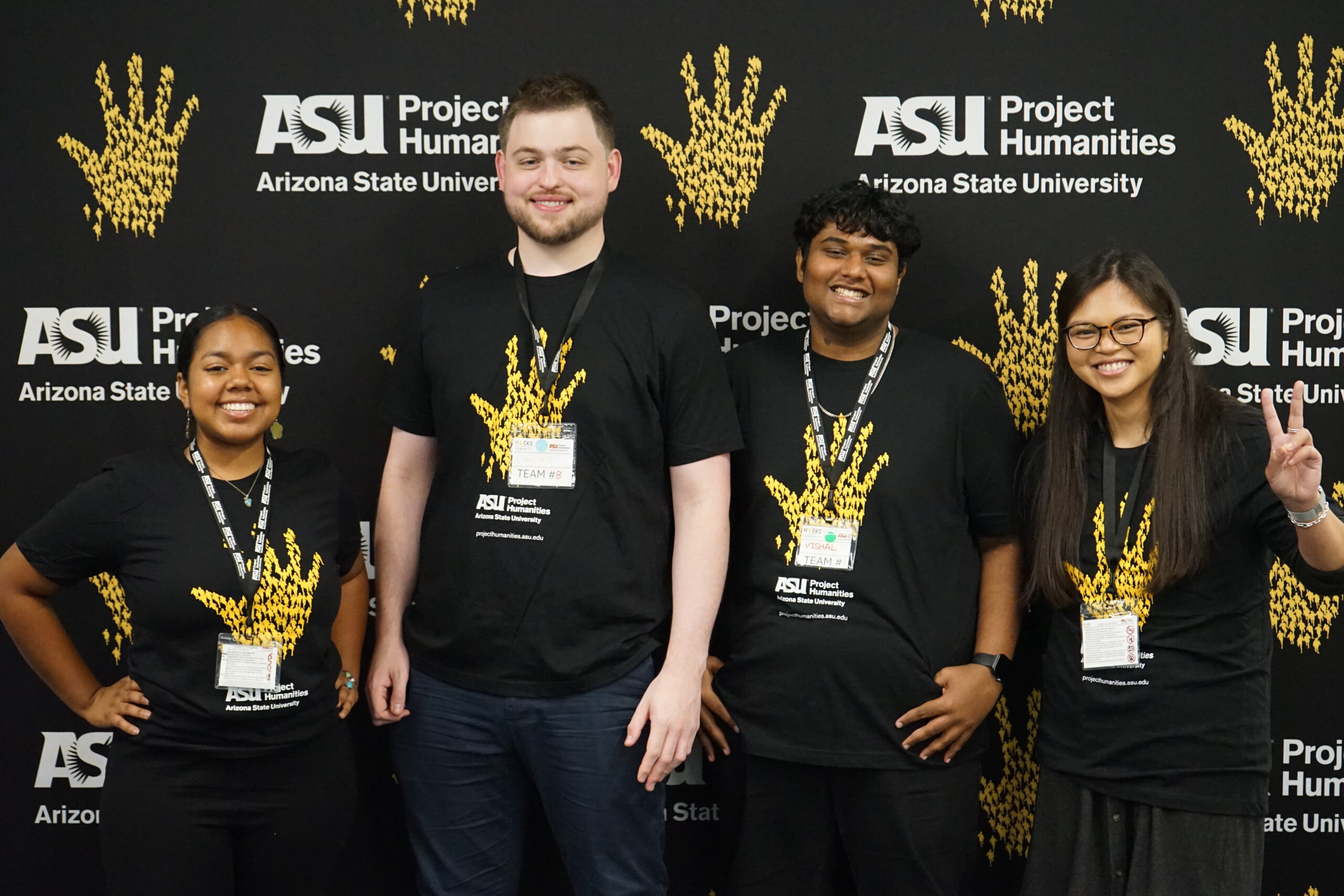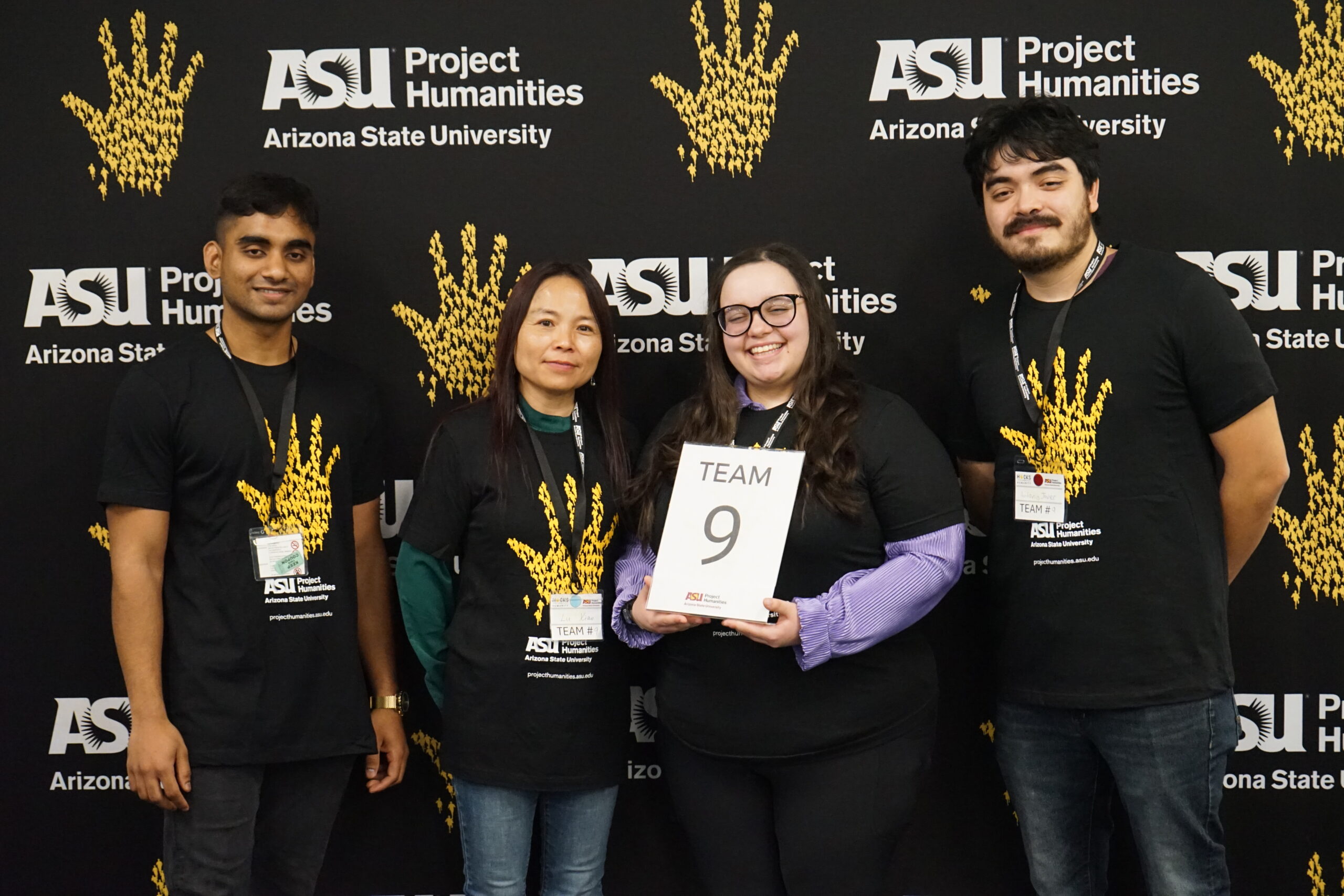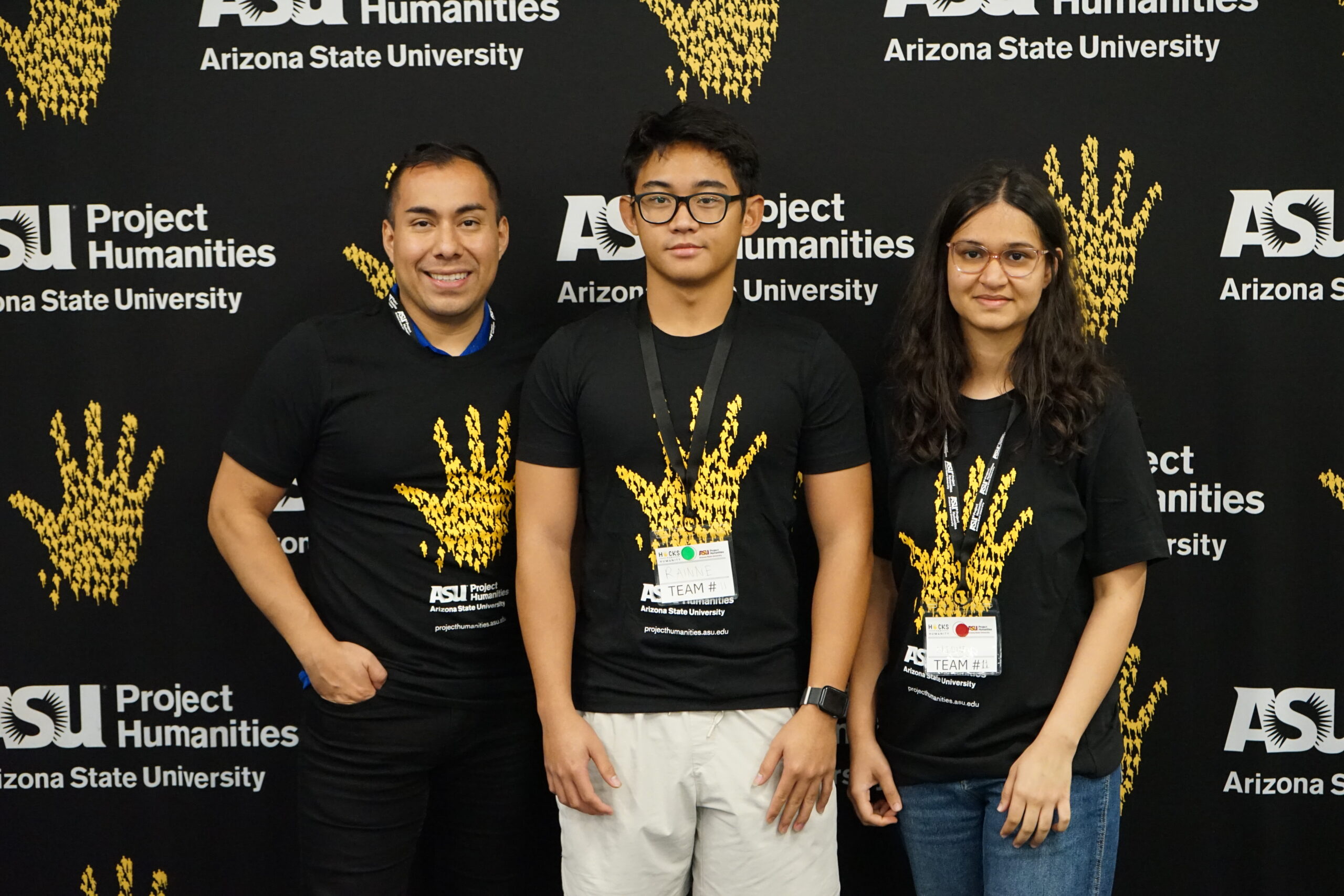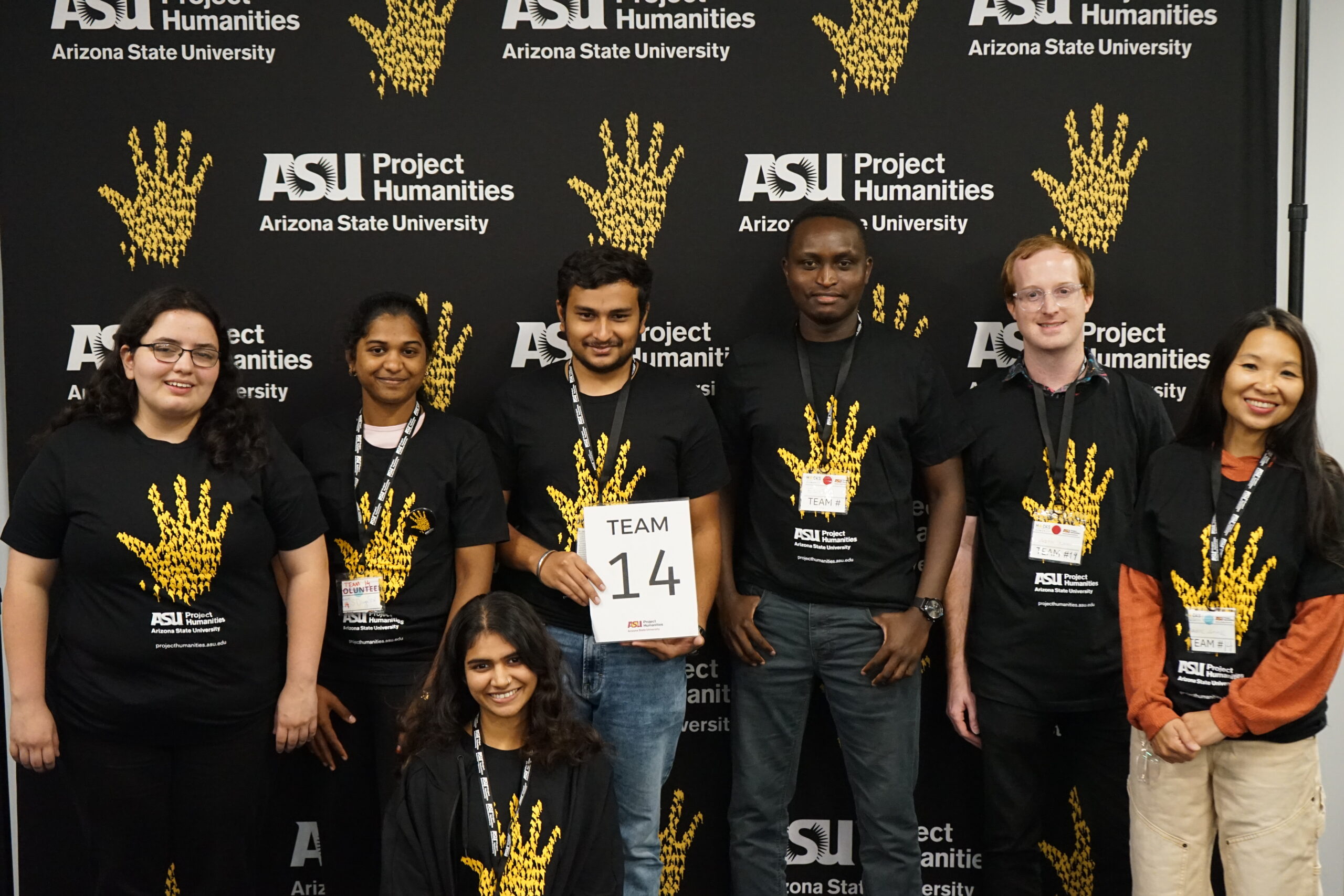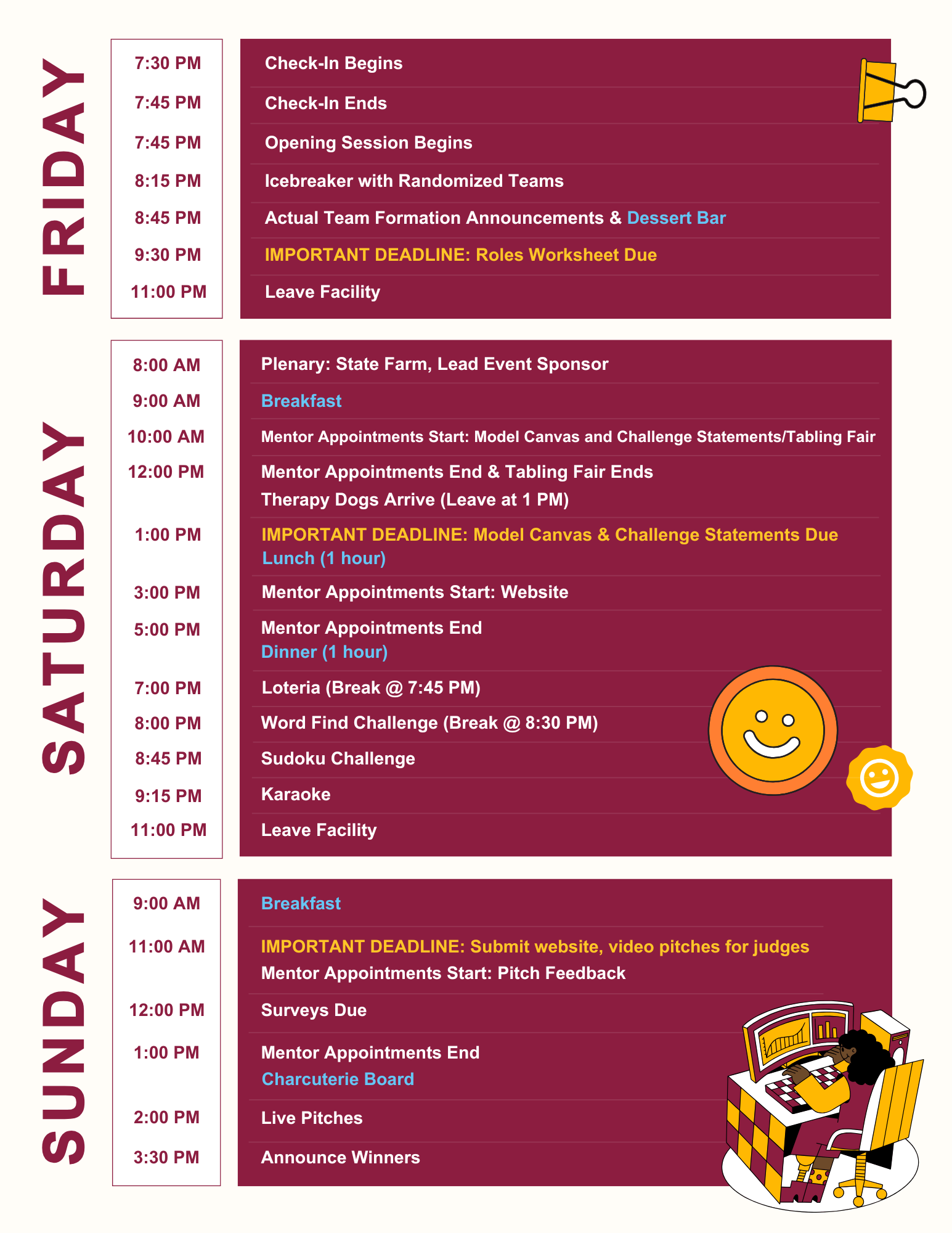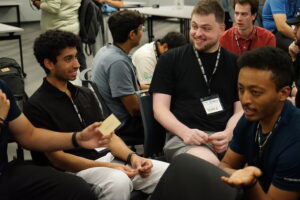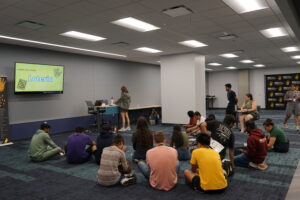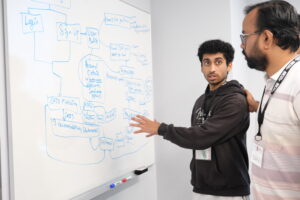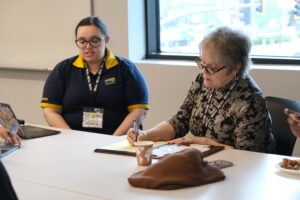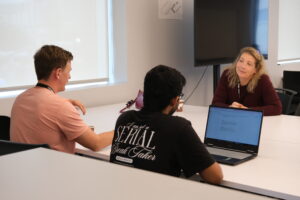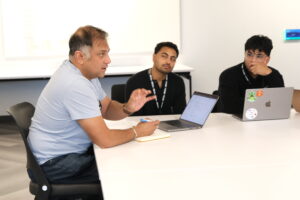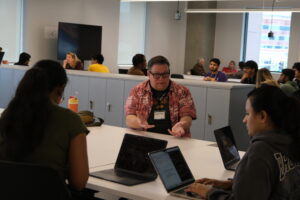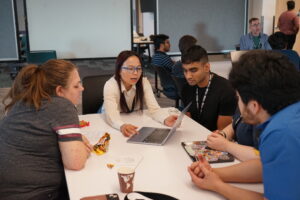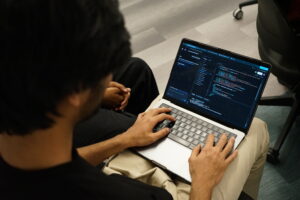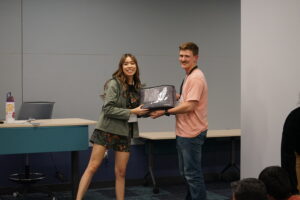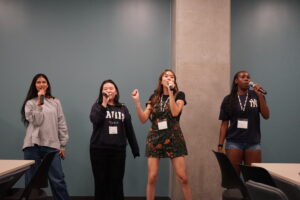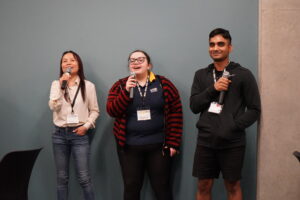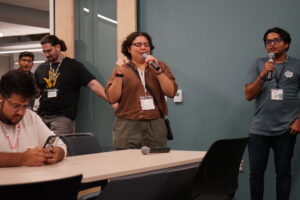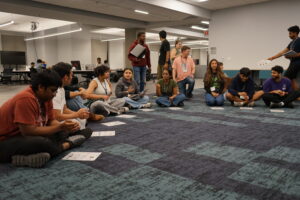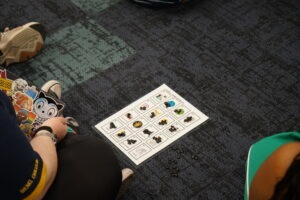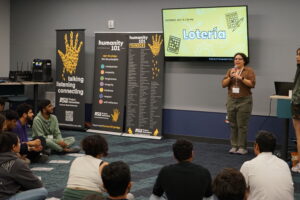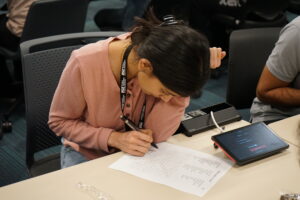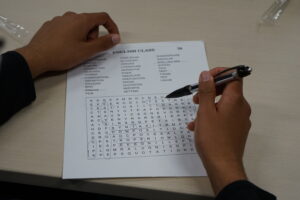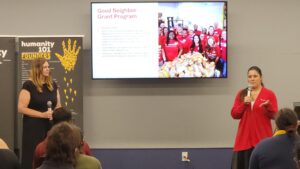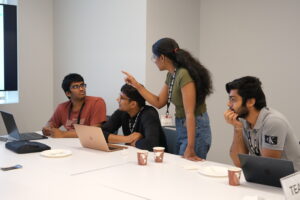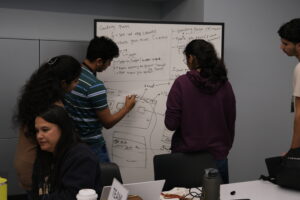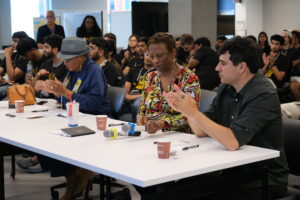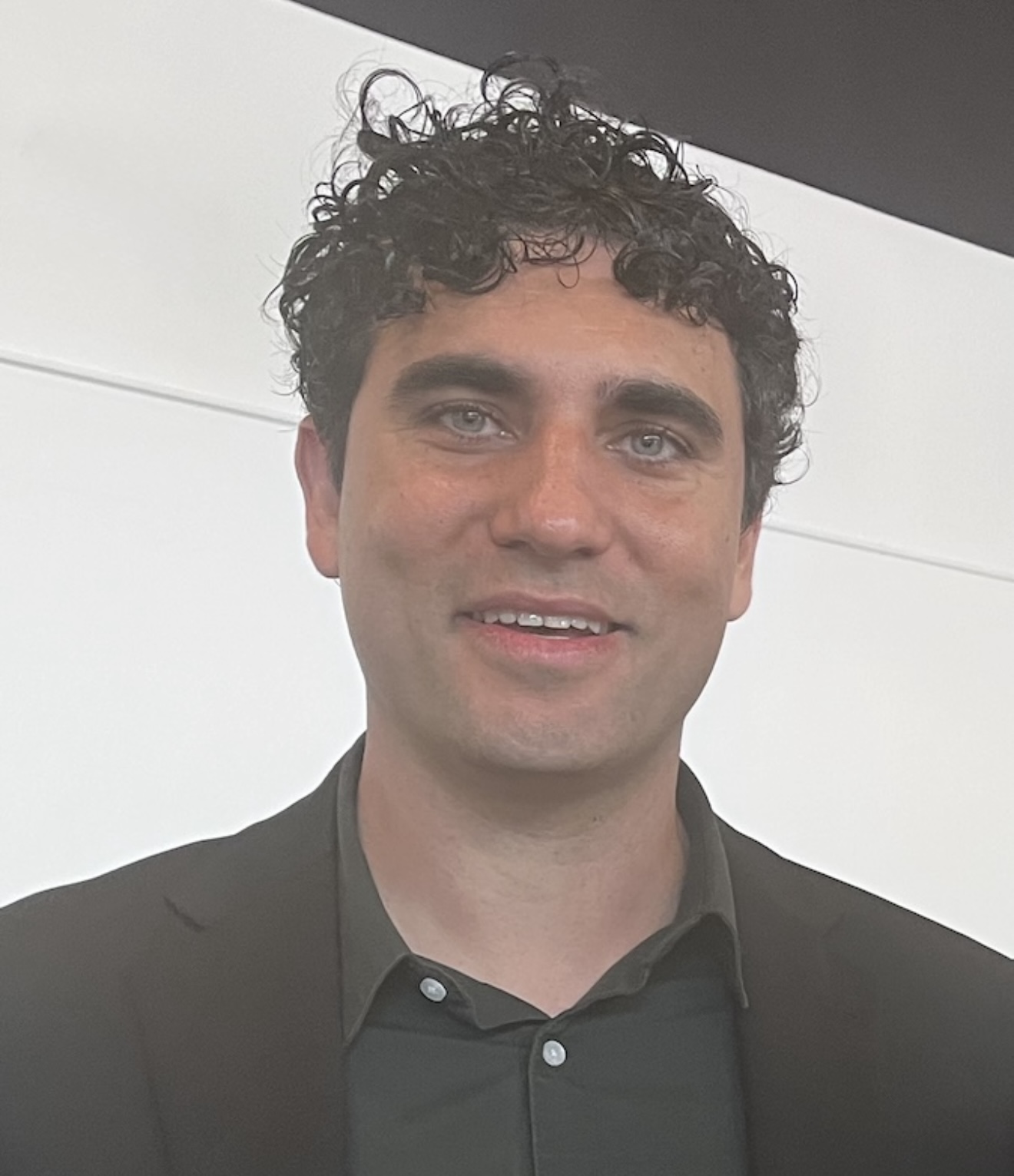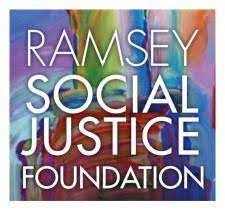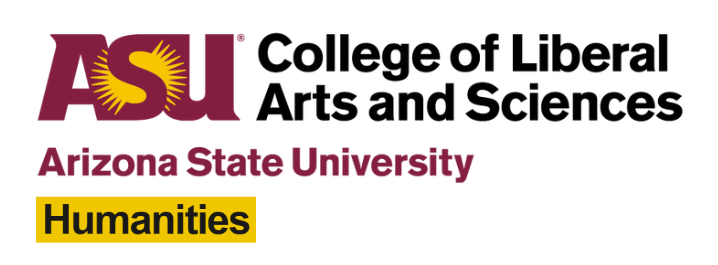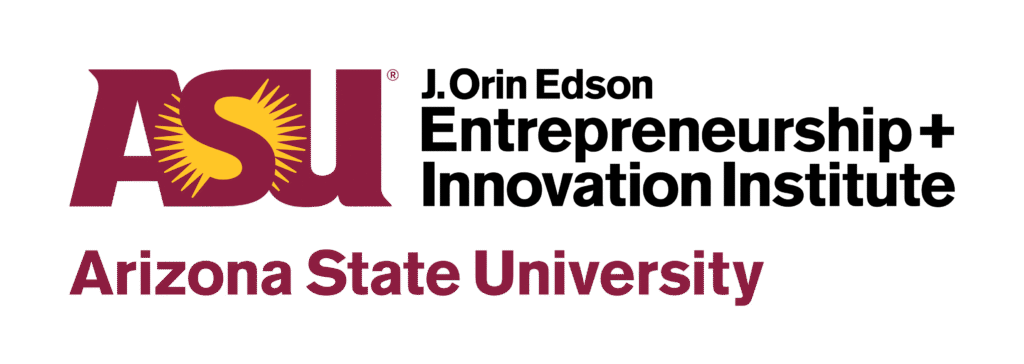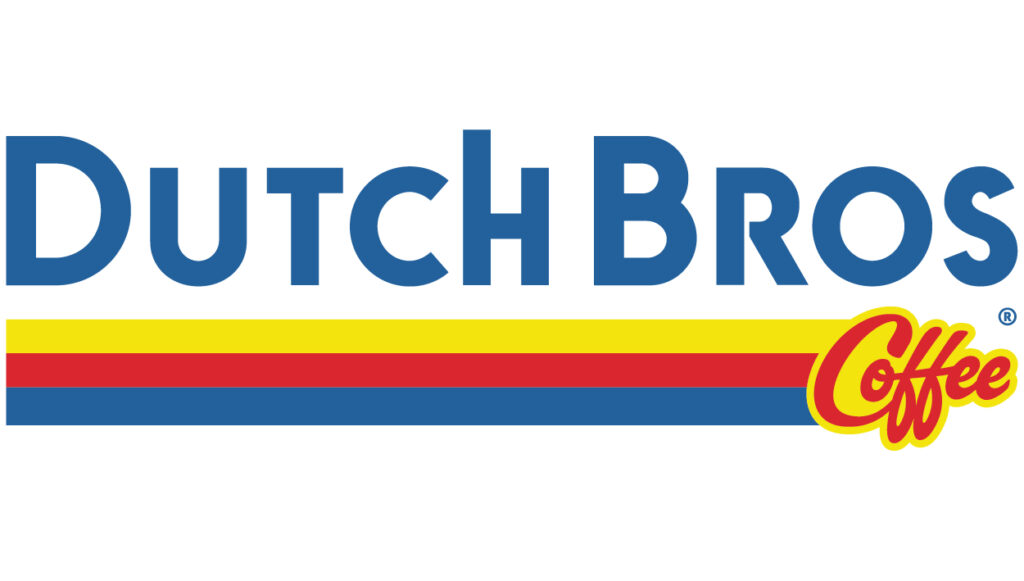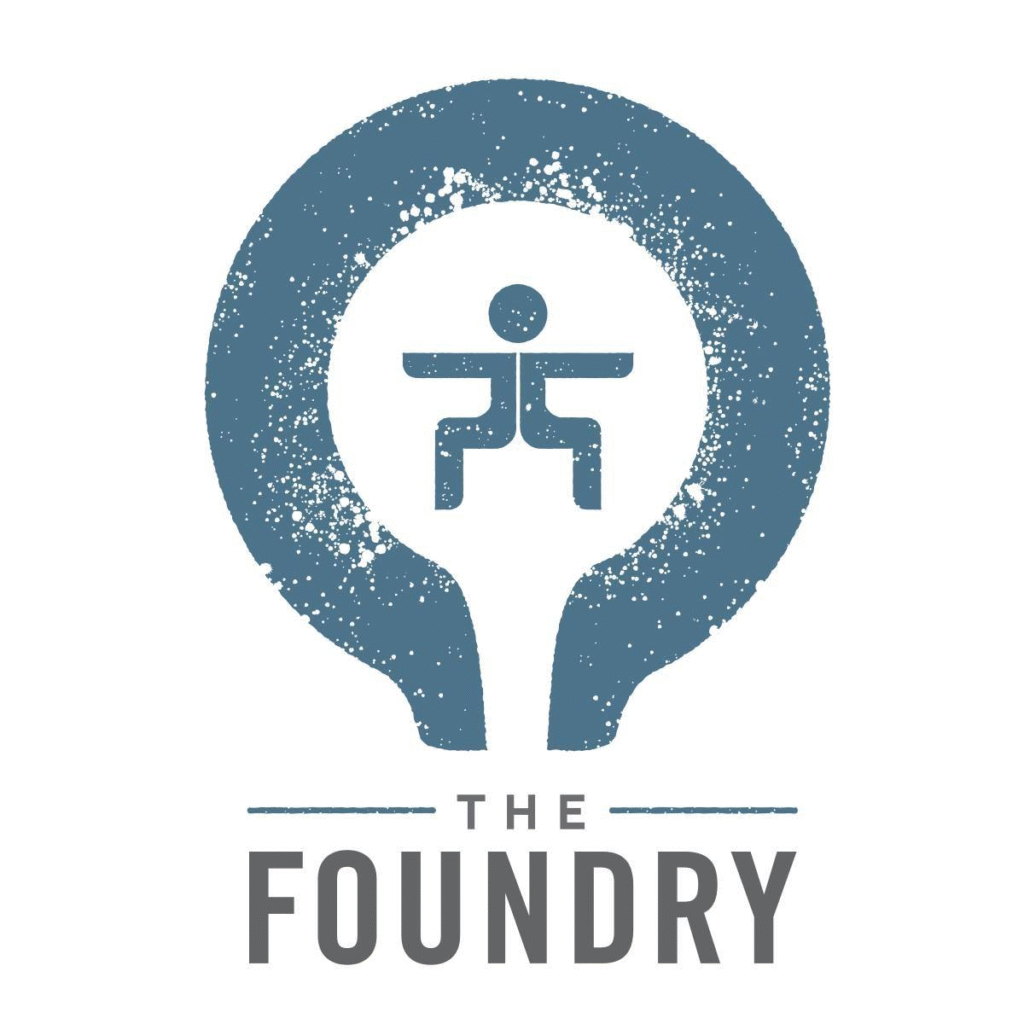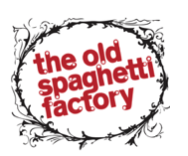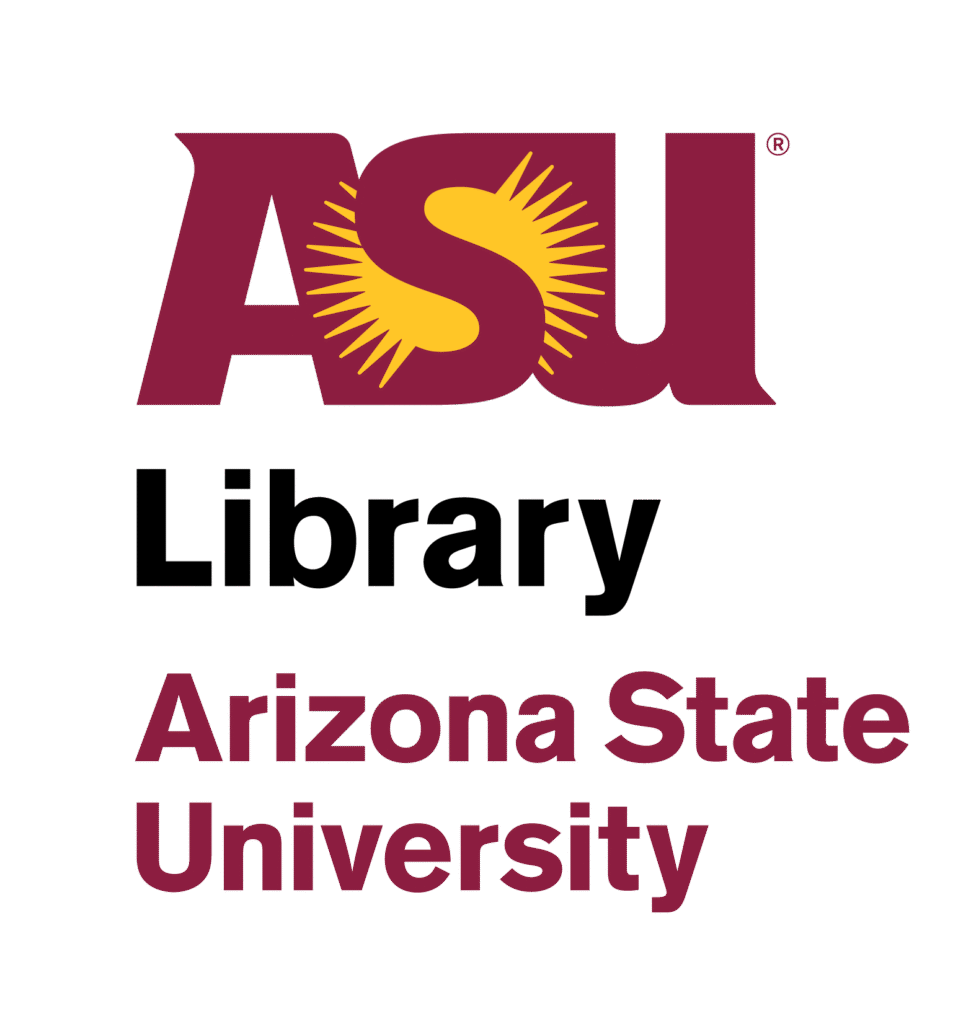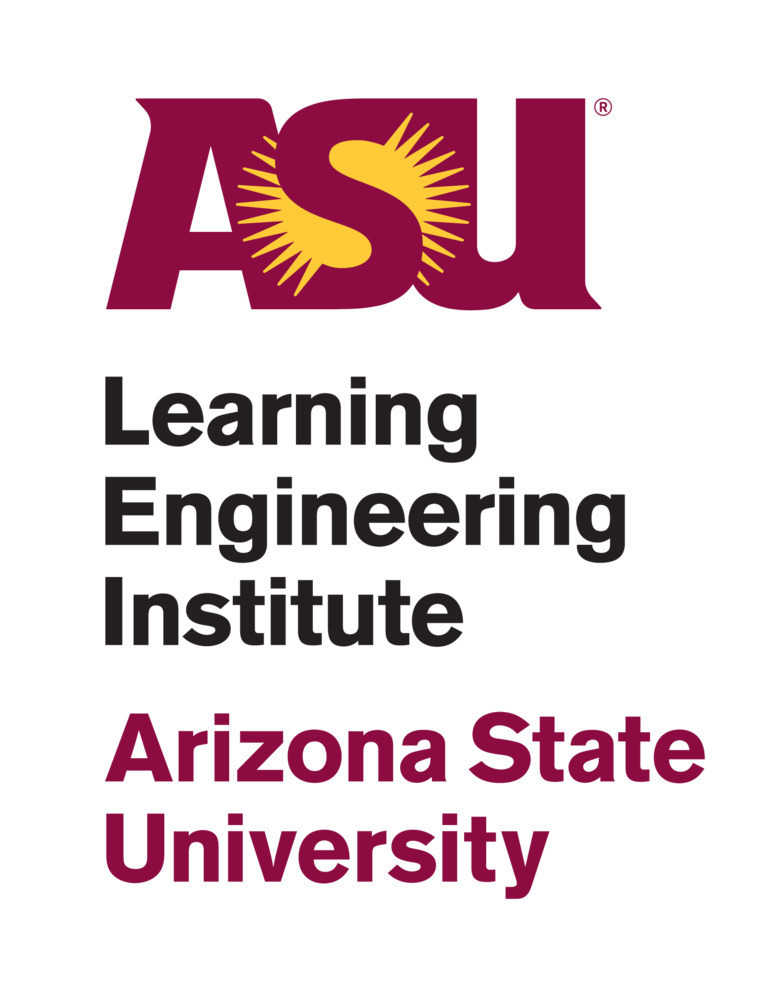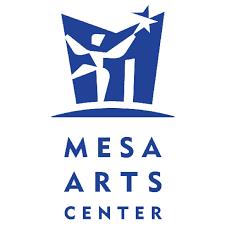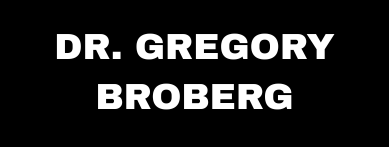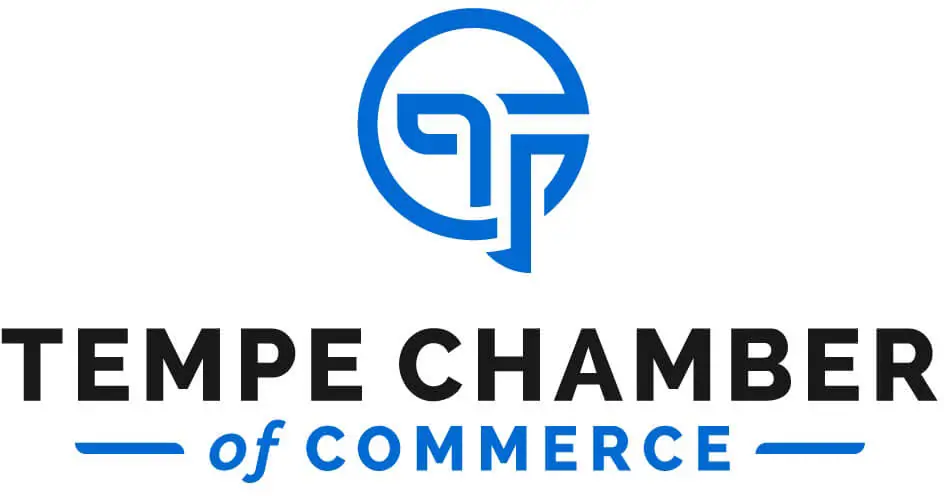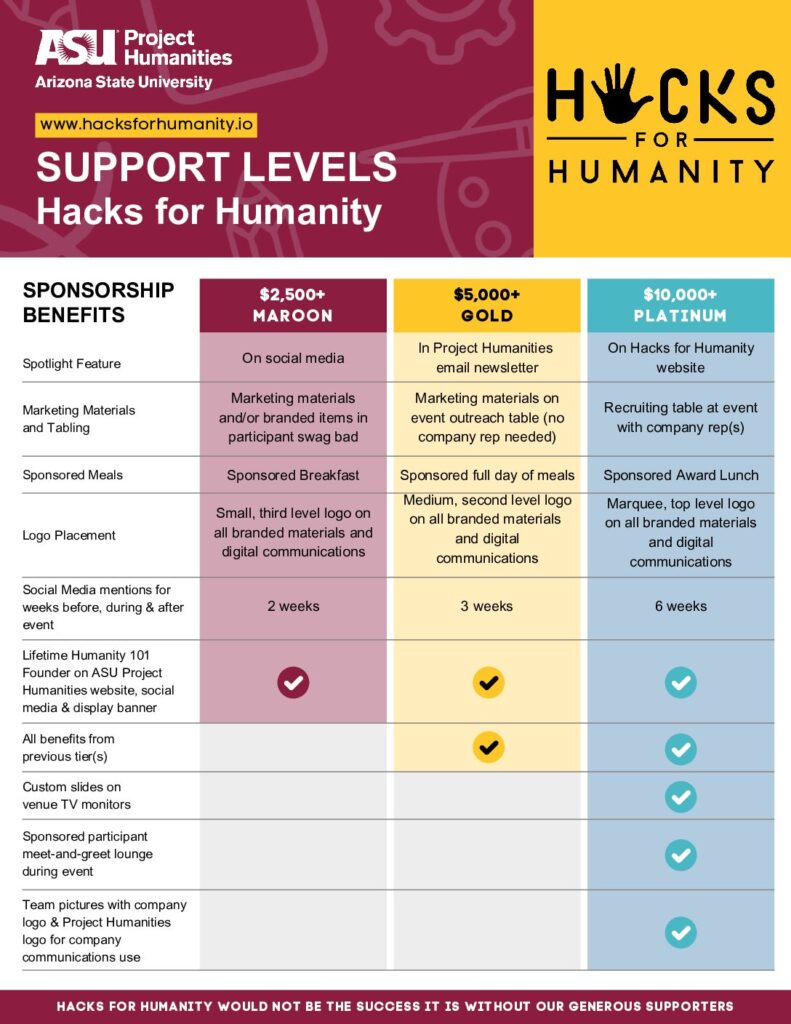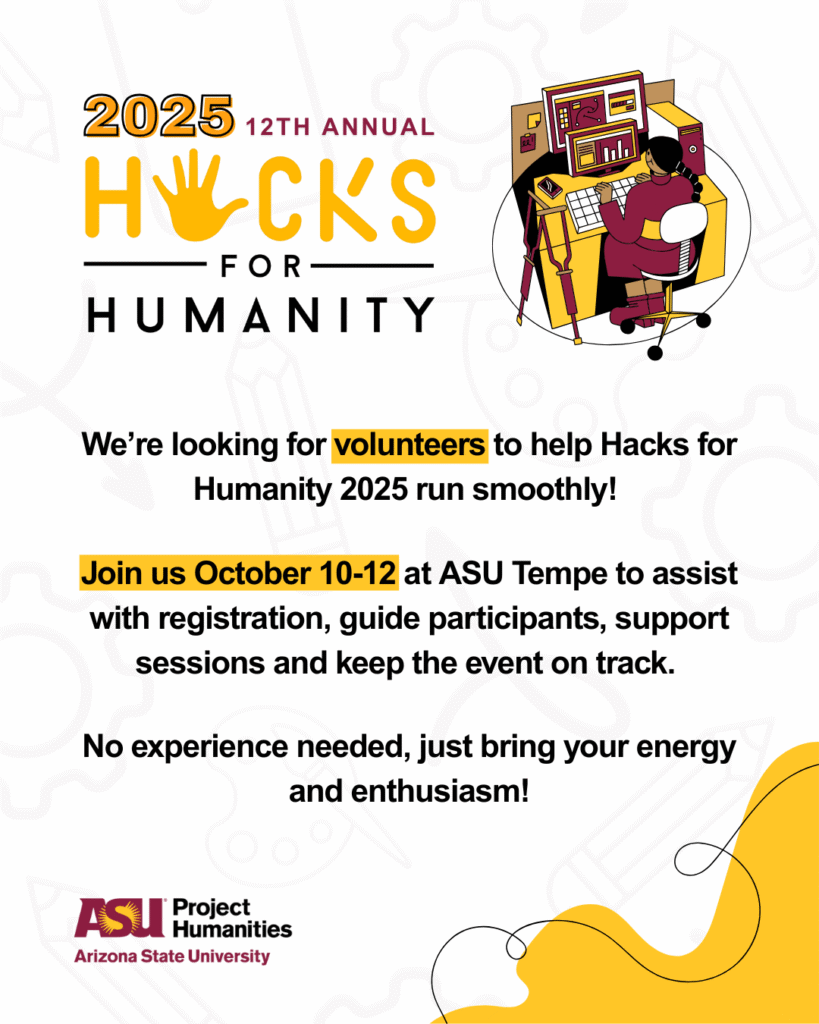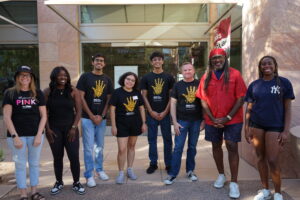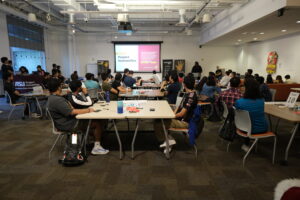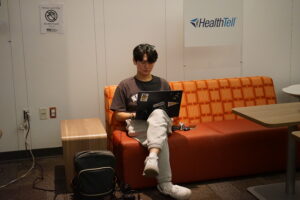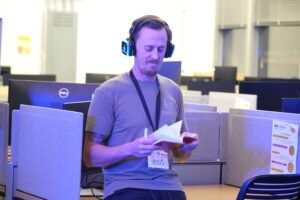ABOUT THE EVENT
Hacks for Humanity: Hacking for the Social Good
Hosted by Project Humanities at Arizona State University, Hacks for Humanity is not just a hackathon—it’s a 36-hour innovation marathon. Participants from diverse backgrounds—including students, faculty, staff, and community members—come together to develop technical solutions that address pressing local and global challenges. By integrating the seven core principles of Humanity 101®—compassion, empathy, forgiveness, integrity, kindness, respect, and self-reflection—each project not only proposes a solution but also fosters personal growth and community understanding.
Our Impact
Our hackathon does more than spark innovation; it inspires action and builds lasting networks, empowering participants to use technology for societal change.
What Makes Us Unique
Hacks for Humanity welcomes everyone—from coders to artists, and students to retirees. By uniting diverse perspectives, we ensure groundbreaking solutions emerge every year.
Overview
Project Humanities Celebrates 12 Years of Hacking for Humanity
Project Humanities at Arizona State University held its 12th annual “Hacks for Humanity: Hacking for the Social Good” from October 10-12, bringing together 120 participants; including students, professionals, and retirees, for 36 hours of innovation. Teams of 7-8 members, drawn from diverse fields like engineering, business, and the arts collaborated to develop technologies addressing Nutrition and Wellbeing, Community Engagement, Misinformation/Disinformation. Each team’s project had to reflect at least 3 of these 7 Humanity 101® principles–compassion, empathy, forgiveness, integrity, kindness, respect and self-reflection. This year’s event, held at University Gateway Building on Mill Avenue, Tempe.
2025 Hacks for Humanity Event Report Hacks for Humanity 2025 Tracks
Nutrition and Wellbeing
People live busy lives and have busy schedules. With inflation, high food prices, and food availability, how can people ensure that they can have access to nutritious foods and recipes? Also considering people experiencing homelessness, how can communities ensure anyone gets access to proper nutrition?
Community Engagement
How do individuals empower communities to foster connection, participation, and local impact?
Misinformation/ Disinformation
How do people understand and address the spread of misinformation and disinformation in an age of rapid digital communication? What counts as “truth” in contested spaces, and who gets to decide? How do power, platforms, and perception shape what people believe?
Winners 2025
First Place
SkillLoop (Team 10)
Screens aren’t good teachers. People are good teachers, and the best way to learn a new skill is one-on-one, hands-on, with expert instruction. SkillLoop isn’t just another app but rather a way to escape apps, meet your neighbors, and develop real skills in real life. In addition, this is a new platform for volunteering opportunities marketed to companies and organizations with volunteer programs as a new venue for community enrichment. Volunteer instructors can earn volunteer credit hours by offering free lessons to community members. Humanity 101 Principles used here are – Kindness, Empathy, and Respect.
Second Place
momAI (Team 1)
According to a report by the Pew Research Center (2025), approximately 20% (1/5) of US Americans have unhealthy diets. When deciding what to eat, taste is a high priority for most (83%), and home-cooked meals are more cost-effective than ordering takeout or eating at restaurants. MomAI is a recipe customizer that serves as a nurturing AI “mom,” providing personalized, culturally diverse, healthy meal options, and fosters an engaging community to keep users motivated on their wellness journey. Humanity 101 Principles used are – Empathy, Self-reflection, and Forgiveness.
Third Place
Nourish (Team 12)
Many people struggle to afford healthy and nutritious food. Our product makes healthy and affordable food more accessible by showing people where to buy groceries at the best prices nearby. Our solution is a community-powered/planning app that compares prices from different stores, shares local deals and coupons, and promotes sustainable shopping. Humanity 101 Principles used here are – Integrity, Kindness, and Empathy.
Other teams
Team 2 | Zeenc
Our primary users are people who want to volunteer on their own terms—choosing cause, location, time, and using their specific skills. Non-profits benefit by finding verified, reliable volunteers matched to clear role requirements and time windows. Secondary users include Corporate Social Responsibility teams coordinating safe, skill-aligned group opportunities. This platform emphasizes accessibility for first-time volunteers and sustained engagement for experienced contributors. Humanity 101 principles used here are – Empathy, Integrity, and Respect.
Team 3 | FoodShare
Our team built a food bank management system to support individuals with their dietary restrictions and to reduce food waste. Our product helps investors find a food bank to fund by ranking food banks with the help of their mottos and their milestones, addressing problems that food banks face. Our challenge directly reflects the Humanity 101 principles used here are – Integrity, Compassion, Respect, and Kindness.
Team 4 | Tether
Vulnerable populations–including young adults aging out of foster care, isolated single parents or families at risk, and employees facing personal challenges–lack accessible, trusted community connections that provide practical and emotional support during critical life moments; leading to higher rates of crisis, mental health challenges, and system involvement. Tether Families for Everyone creates a human-verified, boundary-respectful community platform that matches families and individuals for mutual support, providing graduated engagement options for those who cannot pass traditional vetting and offering on-demand family-like support for life milestones. Humanity 101 Principles used here are – Respect, Kindness, Empathy, Self-Reflection and Forgiveness.
Team 5 | Block Stories
Block Stories is an augmented reality mobile app that preserves the disappearing histories of neighborhoods by allowing residents to “pin” memories, photos, and audio stories to real-world locations. Walking through a community becomes an immersive experience. You can hear the voices, see the images, and feel the stories of those who lived there before. stories of those who lived there before. Humanity 101 Principles used here are – Empathy, Respect, Kindness and Self Reflection.
Team 6 | Community Connect
Our product brings communities closer together in an era where neighbors feel like strangers. Loneliness is an epidemic in the USA and a leading cause of depression. Our solution is a community management app that allows communities to pool funds into community projects and experiences. Humanity 101 Principles used here are – Respect, Kindness, and Integrity.
Team 7 | Pallin
People who are new to a place or feeling isolated often struggle to find others to connect with personally. A platform that matches individuals based on shared interests, personality, and comfort levels can help them build meaningful one-on-one or small-group connections, promoting genuine social interaction and reducing loneliness. Humanity 101 Principles used are – Empathy, Compassion, and Respect.
Team 8 | Melting Pot
In a world that is increasingly dehumanizing immigrants, we created an application that encourages human interaction and community engagement through food with an application called Melting Pot. Our vision is to meet, greet, eat, repeat. Humanity 101 Principles used are – Compassion, Empathy, Kindness, and Respect.
Team 9 | BRIDGE
Many international students and scholars struggle to find meaningful ways of connecting with their globally-minded local communities. BRIDGE addresses this by providing a platform that connects them to nearby volunteering opportunities while fostering empathy and appreciation through guided reflection and recognition. Humanity 101 principles used are – Empathy, Kindness, and Self-reflection
Team 11 | NourishWell
How do organizations get food donations into the hands of those who most need it? Our solution is a service that streamlines the process by directly connecting those who have food with those who need it, cutting down food waste. Humanity 101 Principles used are – Kindness, Integrity and Empathy.
Team 13 | Kare
Limited access to dependable assistance with daily activities and social interaction leaves many seniors vulnerable to loneliness and reduced quality of life. Humanity 101 Principles used here are – Compassion, Empathy, and Respect.
Team 14 | Give and Take
Give and Take is a peer-to-peer food exchange platform with offline mesh networking that enables communities to swap food based on actual needs and preferences. This solution addresses food waste and food insecurity while ensuring resilience during emergencies and network outages. Humanity 101 principles demonstrated here are – Empathy, Compassion, Resilience, and Kindness.
Event Schedule
Highlights
Testimonials
Feedback from 2025
“Had an eye opening experience. Learnt a lot of things from the mentors. This is the first hackathon that showed me what mentoring really supposed be.”
“I love the fact that the hackathon does not heavily focus on the technical aspects of a solution.”
“Very welcoming for newcomers”
Judges for Hackathon 2025
David Dilley
David Dilley is a director of the Ramsey Social Justice Foundation.The Ramsey Social Justice Foundation has a long history of supporting organizations dedicated to social justice, especially those working in marginalized and underrepresented communities worldwide.
Janice C. Washington
As State Director of the Arizona Small Business Development Center Network, Janice C. Washington was a successful and innovative leader and developer of people and businesses. She held various leadership roles that included financial oversight, building small businesses and serving on state and national boards. Skilled in the application of critical thinking and analysis, she was successful in attaining key metrics and leading by example to bring together groups with diverse interests, skills, and influence to achieve a common goal. As former principal of J. C. Washington CPA, she provided income tax, accounting, audit, and review services combined with management of finance and administrative functions. Throughout her career, Janice prioritized focusing on the “Why”.
LORETTA H. CHEEKS
Dr. Loretta H. Cheeks is an Artificial Intelligence (AI) expert, research scholar, consultant, educator, and speaker. She is the founder of Strong TIES and DS Innovation. Throughout her career, she has helped organizations gain dynamic insights using computation and AI, serving private enterprises, governments, and nonprofits while advancing STEAM education globally.
sponsors
Supporters
WAYS TO PARTICIPATE
Participants compete for team prizes of 1st, 2nd, and 3rd place as well as individual awards such as People’s Choice awards
Participant Requirements:
- Participation is not open to high school students.
- Age Group- 18 years and above; anybody from students to professionals to retirees.
- Register based on individual areas of expertise: artists, coders, designers, engineers, entrepreneurs.
- Stay with assigned team for the duration of the event.
Mentors use their expertise to help teams spark creativity, generate ideas, problem solve, and develop final presentations.
Mentor Requirements
- Any age
- Register by most accurate skill set category: artists, coders, designers, engineers, entrepreneurs, humanists
- Commit to 2-hour blocks of time
- Passionate about using innovation to address local and global issues for the greater social good
Register Here Volunteers participate in the event as a close observer while assisting Project Humanities team with event logistics. They can be anyone interested in assisting the Project Humanities team in various event logistics.
Volunteer Requirements
- Any age
- Any area of expertise welcome
- Commit to 2-hour blocks to assist Project Humanities team with logistics
- Virtual and In-Person opportunities available
- Assist with tasks such as registrant sign ins, facilitate participant activities throughout 36-hour event
Register Here IN THE NEWS
– Sept 21, 2024
Over a decade ago, Ahwatukee professor Dr. Neal Lester had an idea:
If code-savvy professionals can get together to solve technical issues through a “hackathon,” why can’t people of all walks of life and ages get together to come up with working “hacks” that address a social problem.
Flash forward to 2024 and the Arizona State University Foundation Professor of English has produced an answer 10 years running: People with and without coding experience can indeed gather in small teams for a focused, concentrated period of time and produce attainable solutions to social problems… Read More
2024 in Action
Past Hacks for Humanity At-A-Glance
contact us
Have any questions? We are here to help.
Fill out the form below and our team will get back to you as soon as possible
Reach Us
- Office– Discovery Hall 112, 250 E Lemon St, Tempe, AZ 85281
- Phone– 480-727-7030
- Email– [email protected]

